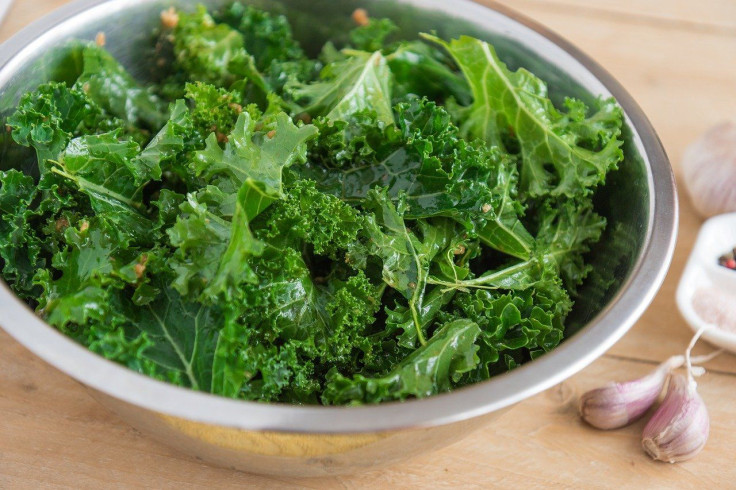Man's Chronic Migraine 'Reversed' By Plant-Based Diet: 'I Have My Life Back'
KEY POINTS
- A 60-year-old chronic migraine sufferer was advised to go on the LIFE diet
- Within months, he experienced a dramatic decrease in migraine frequency
- He had no more migraines after just 3 months on the plant-based diet
A man who endured severe migraines for over a decade was treated after he made the switch to a plant-based diet, researchers report. From suffering almost every day, he hasn't had a migraine in years.
Migraines are a recurring type of headache that cause throbbing or pulsing sensations, often on one side of the head. Sometimes, it comes with other symptoms such as weakness and nausea, and it could make the sufferer sensitive to sound and light.
About a billion people in the world suffer from migraines, the researchers of a paper published in the online journal BMJ Case Reports said. They described the condition as a "major public health concern."
"While medication plays a central role in migraine prevention and treatment, there is growing evidence that dietary intervention may also offer an effective approach to migraine management without the adverse effects associated with some medications," the researchers wrote.
In the case of the 60-year-old man in their case study, he had been suffering from "frequent" migraines for 12.5 years. He was taking prescription medications and interventions such as yoga and meditation, the British Medical Journal noted in a news release. He had also cut out foods that can "trigger" migraines such as chocolate, cheese and caffeine. However, none of them worked.
By the six-month period prior to his referral to the clinic, his migraines were occurring 18-24 days out of the entire month.
"The quality of pain was throbbing in nature, and it lasted for 72 hours," the researchers noted. "His headaches were accompanied by photosensitivity, phonophobia, nausea and vomiting. On a pain scale of 0–10, the headaches were a 10–12/10."
He was also found to have high levels of systemic inflammation and normal levels of beta-carotene, which could be explained by his regular consumption of sweet potatoes. Even though sweet potatoes are high in beta-carotene, they are actually low in the anti-inflammatory and antioxidant properties of carotenoids.
As the news release explained, systemic inflammation and oxidative stress have been "implicated in migraine." The nutrients that have been proven to reduce these can be found more in dark green leafy vegetables, which are important sources of carotenoids.
"A whole food plant-based diet (WFPBD) rich in dark leafy greens, therefore, may provide a safe and effective treatment for migraine," the researchers wrote.

For the study, the doctors placed the patient on the Low Inflammatory Foods Everyday (LIFE) diet, which is a "nutrient-dense, dark green leafy vegetable-rich, whole food" plant-based diet, the researchers explained. On the diet, he "dramatically" increased his intake of dark green leafy vegetables and reduced his consumption of animal protein.
Within two months of being on the diet, his migraines had been limited to just one day per month. He stopped taking his medications, and the migraines were much less painful even when he ate foods that triggered headaches. After three months, the migraines were "completely" gone.
"These results far exceed the goal of migraine treatment with medication, which is to reduce migraine frequency by >50% per month," the researchers wrote. "In addition, the results were durable; this patient has been migraine-free for 7.5 years."
His serum beta-carotene also tripled since he began the LIFE diet, which the researchers noted to be "consistent" with the high consumption of dark green leafy vegetables.
"I can't even remember the last time I had a headache. I am no longer a prisoner in my own body. I have my life back," the patient shared in the paper. "As a bonus, my asthma improved dramatically since changing my diet, so I no longer take asthma medications."
It's worth noting that the man was an HIV patient, which, together with his antiretroviral medications, may have placed him at an increased risk for migraines, the report noted. According to the researchers, one of the limitations of the study is that it was not possible to study his migraines without the interference of the medications.
That said, he had maintained an undetectable viral load throughout the treatment, "so it is unlikely that his HIV status impacted the dramatic change in his clinical course after initiation of the LIFE diet," the researchers said.
"To our knowledge, this study reports the longest successful treatment of chronic migraine attained with only dietary intervention published to date," the researchers wrote.
"This report suggests that a whole food plant-based diet may offer a safe, effective and permanent treatment for reversing chronic migraine."
© Copyright IBTimes 2024. All rights reserved.






















